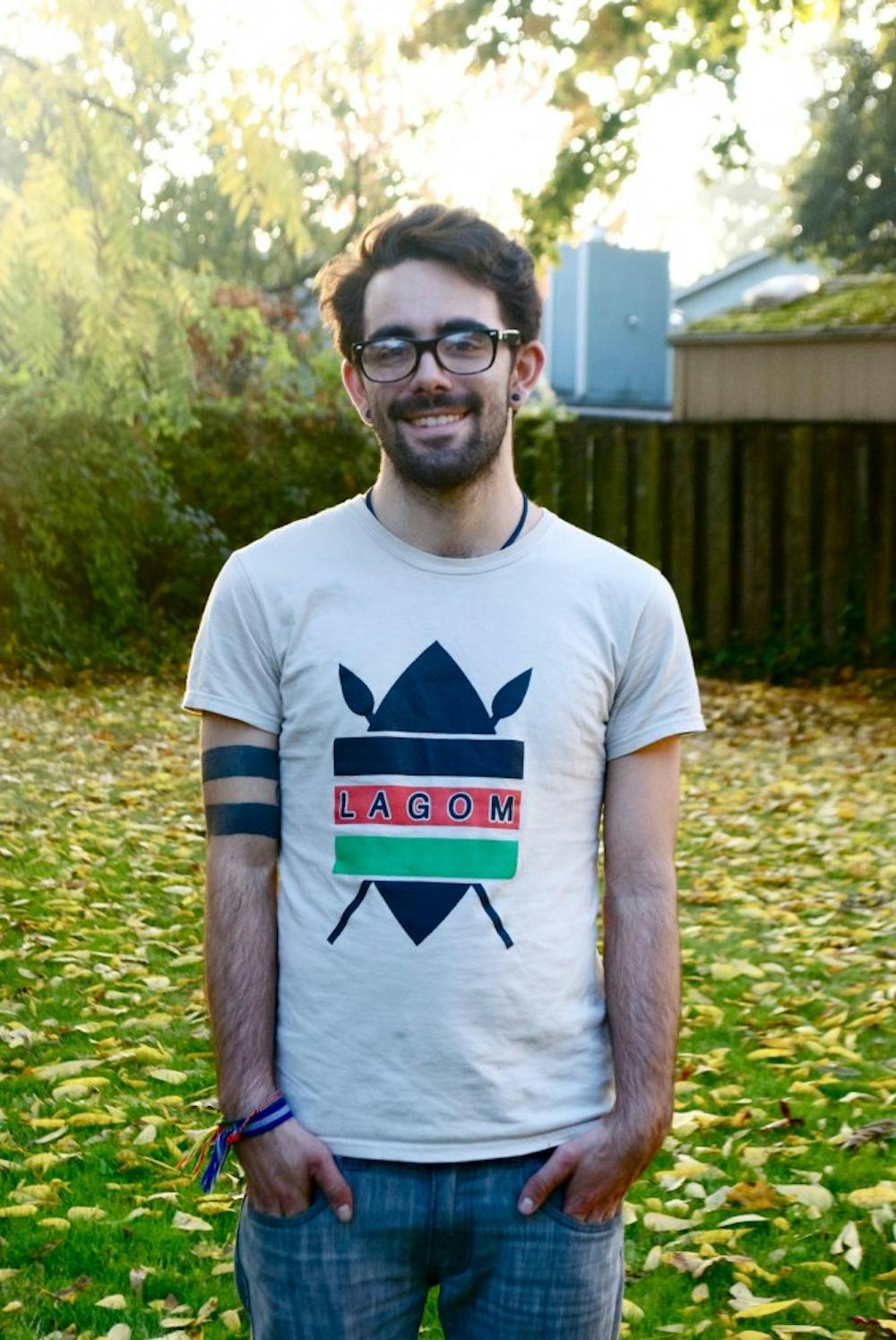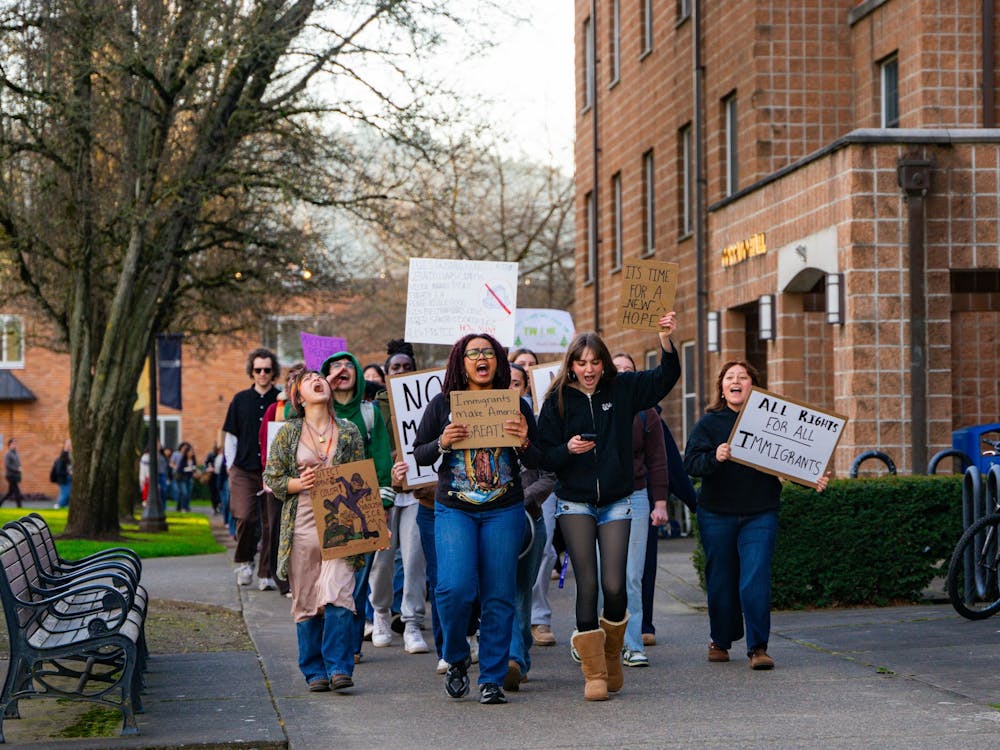UP fifth-year senior starts business to aid student in Kenya
(-- The Beacon)
By Kathryn Walters Staff Writer walters14@up.edu
Inspired by his three-month East Africa Internship in Kenya in 2010, fifth-year senior Taylor Bergmann has started a business to send Kenyan children to school.
"I'd been somewhere where people were suffering from poverty," Bergmann said. "When you come back from an experience like that, you want to help."
Together with four of his friends, PSU students Michael Calhoun and Haakon Weinstein, and Gabe Garza and Patrick Eggert, Bergmann has started a new for-profit business called Lagom, which is Swedish for "not too much and not too little," or "just right." They make and sell T-shirts to raise money to send Kenyan children to school as well as raise capital for those involved with Lagom to eventually travel to Kenya and make a larger impact in the communities.
"This has been a personal passion and project for me for the last three years," Bergmann said. "We're merging a social mission with a for-profit business and creating something that can fund itself and make a better world."
Bergmann believes that the word "lagom" perfectly personifies the business's true intent.
"We think it is a word that truly reflects our identity as a brand," Bergmann said. "We believe that by buying a piece of clothing and paying a premium price to not only get a premium garment but also putting a child in school for a year is just right."
At this stage, the primary purpose of Lagom is to place 150 Kenyan children in school.
"We're specifically staying small with 150 kids until we can prove our concept," Bergmann said.
Lagom uses the "One for One" concept, popularized by the TOMS brand, which means every T-shirt sold will pay the fees and uniform required for one child to attend school for a year.
So far, Lagom has pre-sold 150 T-shirts, which cost $28 each. Eventually, Bergmann hopes to create an entire apparel line based on the Lagom brand.
"We're trying to create a community following," Bergmann said. "Our clothes will be a backdrop that helps to weave our world community together."
A unique aspect of the Lagom business is that each of the 150 T-shirts sold is printed with a number from 1 to 150, corresponding to a child in Kenya that needs to go to school. Those who bought these shirts will have the option of purchasing products with the same number on them each year, ensuring each child can continue to stay in school.
Freshman Grace Powell bought the sixth T-shirt, and looks forward to helping a Kenyan child now as well in the future.
"That is my favorite part of the brand, to help the kid next year," Powell said.
In addition to the initial 150 shirts sold that go toward the Kenyan children's education, subsequent shirts sold will fund the next step in the business' mission, which is to travel to Kenya to help the communities in person. In the end, Lagom's ultimate goal is to become a completely self-sufficient, socially-responsible business.
"We're in it because we want to make a better world," Bergmann said. "We want to create a business that is able to support itself and also provide a lot of impact for everyone involved in the process."
Freshman Shashana Packus bought the seventh T-shirt.
"Everyone can buy a T-shirt," she said. "If it was any other product, you couldn't guarantee that everyone would buy it."








